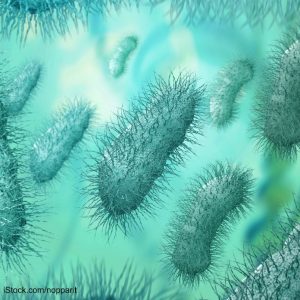Researchers at Texas Tech University’s Department of Animal and Food Science have discovered a new serotype of Salmonella bacteria. It was confirmed by the Pasteur Institute in Paris, which has the international reference center for Salmonella. The new strain is called Salmonella Lubbock.
 Marie Bugarel, a research assistant professor at the University, discovered the bacteria. One of her mentors at the University, Dr. Guy Loneragan, said in a statement, “more important than the name, however, is that this discovery illustrates there is more that needs to be discovered about Salmonella and how it interacts with cattle populations. With this understanding will come awareness of how to intervene to break the ecological cycle and reduce Salmonella in animals and in beef, pork, and chicken products.”
Marie Bugarel, a research assistant professor at the University, discovered the bacteria. One of her mentors at the University, Dr. Guy Loneragan, said in a statement, “more important than the name, however, is that this discovery illustrates there is more that needs to be discovered about Salmonella and how it interacts with cattle populations. With this understanding will come awareness of how to intervene to break the ecological cycle and reduce Salmonella in animals and in beef, pork, and chicken products.”
The main focus of the research was to improve public health by reducing Salmonella contamination in food. Serotyping is the method for distinguishing one bacterial strain from others. Every serotype has a unique pattern of molecules. Bugarel said in a statement, “this discovery reinforces my feeling that the microbiological flora present in cattle in the United States harbors a singularity, which is an additional justification of the research we are doing in the International Center for Food Industry Excellence laboratories at Texas Tech.”
Loneragan thinks that between 20 and 30 percent of Salmonella Montevideo and Salmonella Mbandaka bacteria will be reclassified as Salmonella Lubbock as a result of this research. Some of these strains are more resistant to many families of antibiotics, making them a serious public health threat.
Salmonella contamination in meat and poultry is a problem in the United States. Consumer Reports testers found that 97% of the chicken breasts they purchased in grocery stores were positive for Salmonella bacteria. And CDC data indicates that beef is the fourth most common source for Salmonella outbreaks in this country. Salmonella is not considered an adulterant in any meat product until there is enough of the bacteria present in a food to make people sick. Food safety advocates such as Center for Science in the Public Interest have been clamoring for years to have Salmonella bacteria classified as an adulterant in food to protect public health.




